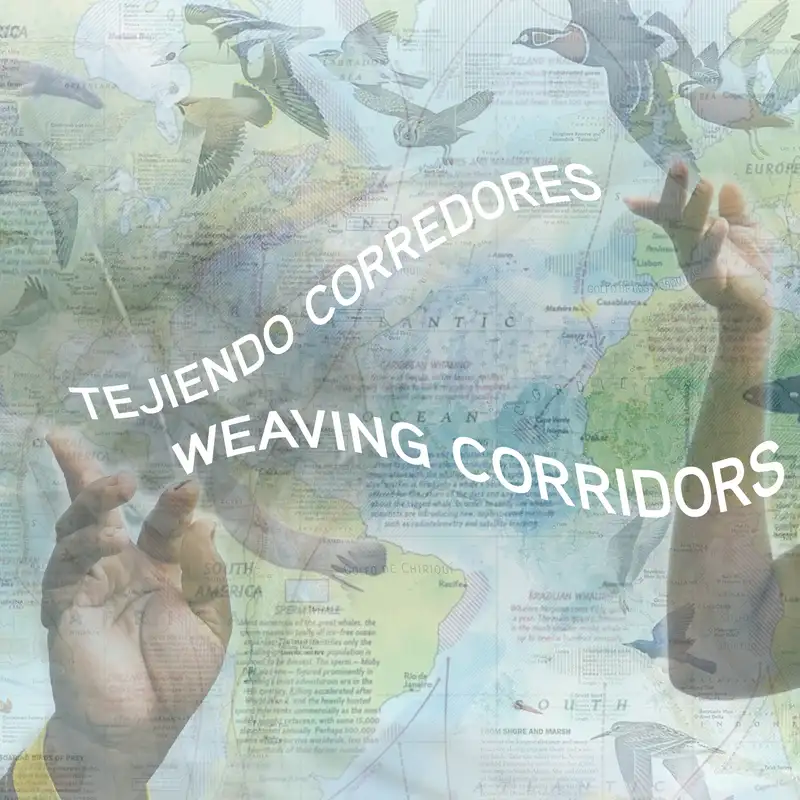 Episodio 2
Episodio 2
· 01:05:51
Lucia Pietroiusti from Serpentine Galleries and the potential role of cultural institutions in an ecological society
Resumen del episodio en español abajo / Episode Summary
EN
In this rich and layered conversation, Lucia Pietroiusti, Head of Ecologies at Serpentine Galleries, shares how she’s been working from within one of the world’s most visible cultural institutions to shift its role — from representing ecological issues to becoming ecologically embedded. She traces the evolution of this effort through the General Ecology Project, launched in 2018, which aimed not just to curate exhibitions, but to infuse Serpentine with a deeper mission of planetary belonging and environmental justice. For Lucia, this means seeing institutions as living parts of ecosystems, with responsibilities that stretch beyond programming and into practice.
She discusses several experimental projects that challenged institutional habits and opened new pathways. Notably, Back to Earth, a multi-year initiative for the Serpentine’s 50th anniversary, invited artists to conceive projects that were both artistic and environmental — some poetic, others practical, many unfinishable within traditional timelines. One outcome included influencing the catering company across UK museums to remove farmed salmon, prompting a brief but radical shift in food systems thinking. These actions demonstrate how art can intervene not just in representation, but in real systems.
The episode also touches on the politics of visibility, systemic transformation, and the limits of sustainability rhetoric. Lucia argues that many cultural institutions still prioritize their own survival over relational care or risk-taking. She advocates instead for a culture rooted in kinship, care, and long-term thinking, drawing from ecology, biomimicry, and even palliative care as metaphors for institutional change. Weaving personal insights with systemic critique, she frames cultural work as both speculative and deeply embodied.
Together, Ela and Lucia reflect on what it means to build “corridors” — not just as physical or biological infrastructure, but as relationships of solidarity, ethics, and aesthetics. They discuss the urgency of fostering awe, trust, and love as foundations for planetary care, and how art — in its mystery, sensuality, and resistance to commodification — remains a powerful force for transformation. The conversation closes with an invitation to imagine cultural institutions as ecosystems in themselves: capable of holding grief, birthing beauty, and participating in the long arc of planetary repair.
ES
En esta conversación profunda y envolvente, Lucia Pietroiusti, directora de Ecologías en Serpentine Galleries, comparte cómo ha venido transformando el rol de una institución cultural de alto perfil — pasando de representar temas ecológicos a encarnarlos. Relata el nacimiento del Proyecto de Ecología General en 2018, que no solo buscaba comisariar exposiciones, sino infundir a la institución una misión más amplia de justicia ambiental y pertenencia planetaria. Para Lucia, esto implica ver a las instituciones como organismos dentro de ecosistemas, con responsabilidades prácticas más allá de su programación.
Habla de proyectos experimentales que desafiaron hábitos institucionales y abrieron nuevas rutas. Uno de ellos, Back to Earth, fue una iniciativa multianual en el marco del 50º aniversario de Serpentine, donde artistas propusieron obras que eran también intervenciones ecológicas. Algunos de estos proyectos cambiaron sistemas reales — como la eliminación del salmón de criadero de menús en museos del Reino Unido. Aunque efímeras, estas acciones muestran cómo el arte puede intervenir no solo en el discurso, sino en las infraestructuras mismas.
También se aborda la política de la visibilidad, la transformación sistémica y los límites del discurso de sostenibilidad. Lucia critica cómo muchas instituciones culturales priorizan su supervivencia estructural antes que la responsabilidad ecológica o la toma de riesgos. En su lugar, aboga por una cultura de cuidado, parentesco y pensamiento a largo plazo, inspirada en la ecología, la biomimética e incluso los cuidados paliativos como metáforas del cambio organizacional.
Ela y Lucia exploran la idea de “corredores” no como rutas físicas, sino como relaciones de solidaridad, estética y ética. Hablan de la urgencia de cultivar el asombro, la confianza y el amor como fundamentos del cuidado planetario. Desde ahí, piensan en el arte como una fuerza transformadora — misteriosa, sensorial y resistente a la lógica del mercado. La conversación cierra con una invitación a imaginar a las instituciones culturales como ecosistemas vivos, capaces de acompañar duelos, generar belleza y participar en la reparación del mundo.
Escucha Tejiendo Corredores ~ Weaving Corridors en tus aplicaciones favoritas.